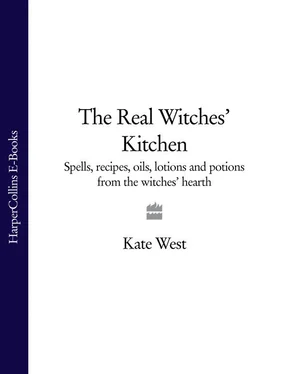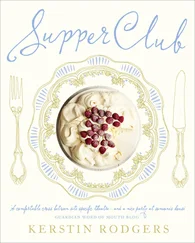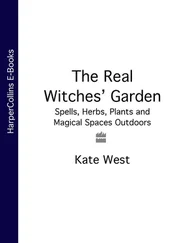The basic ingredients for soap are in fact quite caustic, so it is not only easier but also more user-friendly to rework ready-made soap. The best kind to choose is a pure, unscented castille soap, although you can use this method with other kinds of unscented soaps.
First cut up (or grate) about 4 oz (1 cup) of the soap and place in a heatproof non-metallic container.
 Add about 1/ 4cup (2 fl oz) of hot water and 1 tbsp of almond or apricot oil.
Add about 1/ 4cup (2 fl oz) of hot water and 1 tbsp of almond or apricot oil.
 Leave until cool enough to handle and then mix in with your hands. If the soap is floating on the water you will need to add more soap.
Leave until cool enough to handle and then mix in with your hands. If the soap is floating on the water you will need to add more soap.
Leave for about ten minutes, mixing occasionally, by which time the soap should be soft and mushy. If it is not, place the bowl into a saucepan of boiling water and heat gently.
When the soap, water and oil are completely blended, add any dry ingredients.
When the mixture is cool, add any essential oils. It is important that the mixture be cool as essential oils evaporate quickly in heat. Note that essential oils should be added until they overcome the original odour of the soap, so how much will depend on the type of soap and oil you use.
Blend really thoroughly and divide the mixture into four to six pieces, depending on the size of the soaps you finally require.
 Now squeeze these soaps, removing as much excess water as possible, into the shape you require – balls, ovals or whatever – and tie in cheesecloth.
Now squeeze these soaps, removing as much excess water as possible, into the shape you require – balls, ovals or whatever – and tie in cheesecloth.
 Hang in a warm dry place until completely hard.
Hang in a warm dry place until completely hard.
The soaps can then be used or wrapped in cheesecloth and kept or given away. As an aside, ordinary soap will always last longer if you take it out of its wrapper and keep it in a warm dry place to get completely hard before use.
All the following recipes are based on the above quantity of soap. As people relate to different scents in different ways, these can be adjusted according to your own preferences. Additionally, you can adapt any of the following to a plain unscented liquid soap, but do be aware that liquid soaps are usually detergent-based and hence not really very good for the skin. Where it says ‘oil’ in the following recipes I refer to essential oil, except in the case of the coconut oil in the dry skin recipe. When using herbs or other dried ingredients, make sure that you remove the really hard woody bits to make the soap pleasant to use. If you do not like textured or ‘gritty’ soap, then substitute drops of the appropriate oils.
It is worth noting that when using soap you should always lather it in your hands and then wash the rest of yourself with the lather. It is not a good idea to rub any soap directly onto other areas of the skin as it can be too harsh and drying.
Mental and Physical Cleansing
This is excellent for use before any ritual, or indeed any time when you need to mark the division between one part of your day and another, for example the transition from your work self to your home self.
1 tbsp lavender flowers
6 drops frankincense oil
6 drops sandalwood oil
4 drops jasmine oil
This takes the cleansing recipe a step further in that it is designed to prepare you for the working element of ritual and Magic, when you will need the additional ability to focus and control.
1 tbsp rosemary leaves
1/2 tsp ground cinnamon
6 drops frankincense oil
6 drops sandalwood oil
4 drops jasmine oil
4 drops oil of orange
(you can literally scrape the oil from the outside of an orange using a blunt knife)
The Sabbats are less a time of working and more a time of celebration, hence a different blend. Of course you could make different soaps for different Sabbats, altering the ingredients to match the key points of the festival and the season, in which case you might wish to make a smaller quantity of soap and use it on a daily basis for the seven days prior to the Sabbat, in preparation for it.
1 tbsp rosemary leaves
1/2 tbsp jasmine flowers
6 drops sandalwood oil
6 drops frankincense oil
3 drops cinnamon oil
If you are learning divination, perhaps by reading the Tarot, or do this on a regular basis, then it is worth having a soap especially for the purpose.
6 drops myrrh oil
6 drops frankincense oil
4 drops bay oil
(or take 10 crushed bay leaves, cover with 2 tbsp boiling water and leave for several days before using this liquid as the water in your recipe)
Driving Away Negative Thoughts and Feelings
There are times when we all suffer from self-doubt or a lack of self-esteem or when it seems that everything is working out badly. This is an excellent soap for bringing the spirit back into balance, especially if used in conjunction with other uplifting recipes in this book.
6 drops frankincense oil
6 drops sandalwood oil
2 tsp jasmine flowers
4 drops jasmine oil
4 drops neroli oil
4 drops ylang ylang oil
2 drops ginger oil
4 drops rose oil
(optional as many people find it makes the scent too cloying)
Lavender is the all-purpose healer and works on mind, body and spirit. Living with a fairly standard accident-prone toddler I use this (or slight variants) as the daily soap in the home.
1 tablespoon lavender flowers (fresh if possible)
6 drops lavender oil
This soap is good at combating infections, particularly of the skin, and is also helpful in healing general cuts and grazes.
1 tablespoon honey
1 tablespoon thyme
4 drops tea tree oil
2 drops myrrh oil
Refreshing and Mentally Stimulating
This is especially good for studying or preparing for exams, or any time when you have a need of mental stimulus, as it helps the mind to focus and aids the memory.
1/2 tablespoon chopped fresh rosemary leaves
(dried can be used, but they should be added with the hot water at the start of the process so that they have time to soften)
1/2 tablespoon dried basil
6 drops rosemary oil
6 drops grapefruit oil
4 drops pine oil
4 drops peppermint oil
Dry skin generally benefits from not coming into contact with any kind of soap or detergent and I recommend washing in tepid water only. However, there will be times when soap is desirable, hence the following recipe. Instead of almond oil in the basic recipe, use coconut oil.
Читать дальше

 Add about 1/ 4cup (2 fl oz) of hot water and 1 tbsp of almond or apricot oil.
Add about 1/ 4cup (2 fl oz) of hot water and 1 tbsp of almond or apricot oil.










